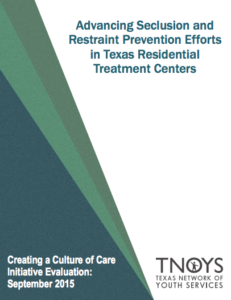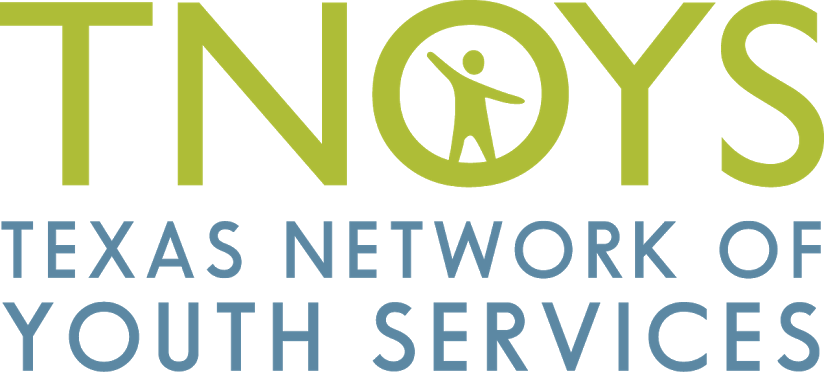
TNOYS is coordinating a pilot initiative to reduce the use of seclusion and restraint at residential treatment centers by implementing trauma-informed practices.
Research suggests that traumatic histories, both physical and emotional, are common among youth in residential treatment centers (RTCs), and systems of care that include seclusion and restraint are likely to re-traumatize residents already having trouble coping with their past experiences.
For the past decade, the Hogg Foundation for Mental Health at the University of Texas at Austin has participated in initiatives to instate systems of care that offer alternatives to seclusion and restraint. Hogg is collaborating with TNOYS in a three-year grant to provide training and technical assistance to RTCs in Texas s seeking to implement the Six Core Strategies to Reduce the Use of Seclusion & Restraint. These strategies are an evidence-based curriculum that focuses on “prevention of conflict and violence, the reduction in use of seclusion and restraint, the implementation of informed care principles, and the fullest possible inclusion of the client in his or her care.”[1]
In this program, TNOYS coordinates regional trainings featuring experts in the field of Trauma-Informed Care, open to all RTCs, as well as individualized technical assistance to a selected group of RTCs.
We are excited to share what we saw and learned! We have available on our website important resources and tools: two videos (see below) featuring TNOYS staff expert Jack Nowicki as well as staff from a participating RTC, Helping Hand Home for Children; and our full, in-depth evaluation report explaining everything from background on the initiative to results to lessons learned for other youth residential programs.
Creating a Culture of Care Initiative Evaluation Report
 This report presents a thorough evaluation of the Creating a Culture of Care initiative, a collaborative effort between TNOYS and the University of Texas’ Hogg Foundation for Mental Health to impact how youth in Texas residential treatment centers receive care. The report includes key findings from quantitative and qualitative research that measured seclusion and restraint reporting and documented organizational changes at 11 intensive sites that were part of the initiative. The findings serve as important evidence that organizational culture change to reduce seclusion/restraint use at residential treatment centers can occur successfully.
This report presents a thorough evaluation of the Creating a Culture of Care initiative, a collaborative effort between TNOYS and the University of Texas’ Hogg Foundation for Mental Health to impact how youth in Texas residential treatment centers receive care. The report includes key findings from quantitative and qualitative research that measured seclusion and restraint reporting and documented organizational changes at 11 intensive sites that were part of the initiative. The findings serve as important evidence that organizational culture change to reduce seclusion/restraint use at residential treatment centers can occur successfully.
